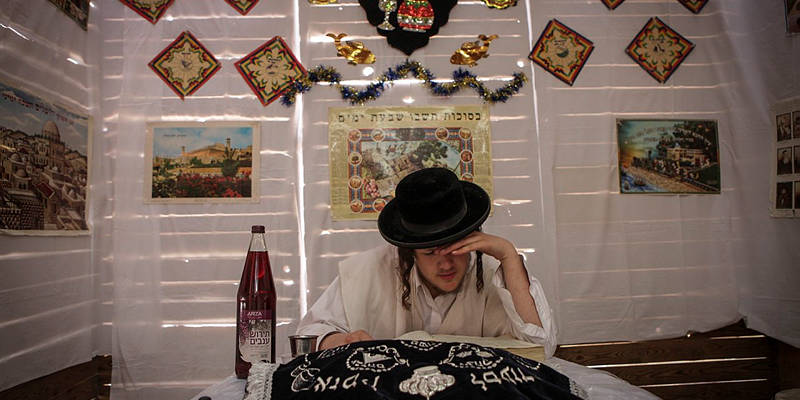Sukkot is also a harvest festival. When people celebrate the work of their hands, they often become arrogant and forget who is the true provider.
By: Rabbi Ari Enkin
Rabbinical Director, United with Israel
The Midrash (rabbinic literature) asks why it is that we celebrate the holiday of Sukkot, which requires us to build and live in a Sukkah booth for seven days, almost immediately after Yom Kippur.
The answer, it is explained, is because God has been sitting in judgment since Rosh Hashana, and his judgement is sealed on Yom Kippur. In the event God has sentenced us to exile in the coming year, we preempt Him by exiling ourselves to our sukkot (booths) and thereby nullify any worse form of exile that may have been decreed upon us.
This midrashic teaching is difficult to understand for a number of reasons. If we are worried about possible decrees and punishments against us in the coming year, I’m sure we’d all agree that poverty and illness would certainly top the list – not something like “exile.” Furthermore, even if we were sentenced to some form of exile, how can we assume that by living outdoors in our sukkot that we preempted God and thereby ‘discharge’ the decree of exile in this simplistic way.
If God had truly sentenced us to exile, it would probably be an exile much further than our backyards!
Exile has traditionally been associated with expelling a sinful people from their land. Additionally, it is said to be a punishment that instills humility. As we know, the reason the Jewish people sinned and were exiled from their land is because they were arrogant and refused to observe the Torah. Eventually, God had enough of it and exiled them.
It would seem that over the Rosh Hashana and Yom Kippur season we should not be worried about a punishment such as exile, as we have been spending the past few weeks coming closer to God and recommitted ourselves to observing the Torah and its commandments. This is the time of year that we are the least arrogant in terms of observing the Torah!
So what is the holiday of Sukkot all about?
It is the Chag Ha’asif – the Harvest Festival. When people celebrate the work of their hands, they often become arrogant. When we think that we are due the credit for our accomplishments and we forget God – not a very good situation.
It is for this reason that we leave our homes and ‘exile’ ourselves into our sukkot at this time. We need to remind ourselves that we are under God’s protection. These feelings come much more readily when one is forced from his or her home.
As the great 11th-century Jewish philosopher Maimonides taught, “Exile atones because it causes man to become more humble and subdued.”
We take the first opportunity after Rosh Hashana and Yom Kippur to focus on God and remind ourselves that He is the true provider. And if we properly internalize this message, we will never come to be deserving the punishment of exile.

